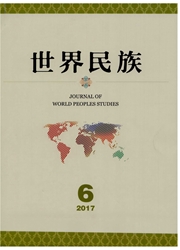

 中文摘要:
中文摘要:
“新德意志”计划是19世纪上半叶德意志人或德意志移民尝试在美国建立多个德意志人共同体甚至是新国家的一种设想与实践。以“1830一代”为代表的德意志自由知识分子试图在海外实现其在本土无法实现的“民族梦”、“强国梦”与“民主自由之梦”,到美国后的德裔移民为保持民族文化并保障同胞权益,一些贵族渴望在海外建立德意志殖民地的尝试,是该计划的主要起源。它们在背景、诉求等方面虽然各有差异,但共同点或者说基本意图,则是要在异国他乡的美国凝聚德意志人、保持自己原有的民族文化及认同。本文以“新德意志”计划中较为典型的两个案例,展示了其实践过程。最后指出,由于组织、管理上存在严重问题,及美国的反对与同化政策,尤其是随着德裔移民本身成分的多样化、内部出现分歧再加之工业化、城市化浪潮的席卷,该计划最终流产。试图保持自己种族、文化共同体的德裔人,最终也像美国其他移民一样融入了美国社会。
 英文摘要:
英文摘要:
" New Germany" plans are attempts drafted by some Germans or German immigrants to establish several Germanic communities or even a new nation in the United States in the first half of 19th century. The "German liberal intellectuals", represented by " 1830 Generation" tried to fulfill their "national dream", and their dream for "great power" as well as "democracy and freedom", all of which could not be realized in their homeland. They were to preserve their national culture and protect the interests of their compatriots, and some German nobles also attempted to establish colonies. It was why the plans were proposed. With various backgrounds and intentions and so on, they still shared a common intention to unite Germans to maintain their original national culture and identity in a foreign country. By studying two typical cases of the plan, this paper presents the process of their practices, analyses the reasons for their abortion, including the organizational or managerial problems involved, the assimilation policy and opposition of America, especially the diversification of German immigrants themselves and their involvement in the wave of industrialization and urbanization. The Germans' trying to maintain their ethnic and cultural community ultimately ended up in being integrated into the mainstream society like other American immigrants.
 同期刊论文项目
同期刊论文项目
 同项目期刊论文
同项目期刊论文
 期刊信息
期刊信息
